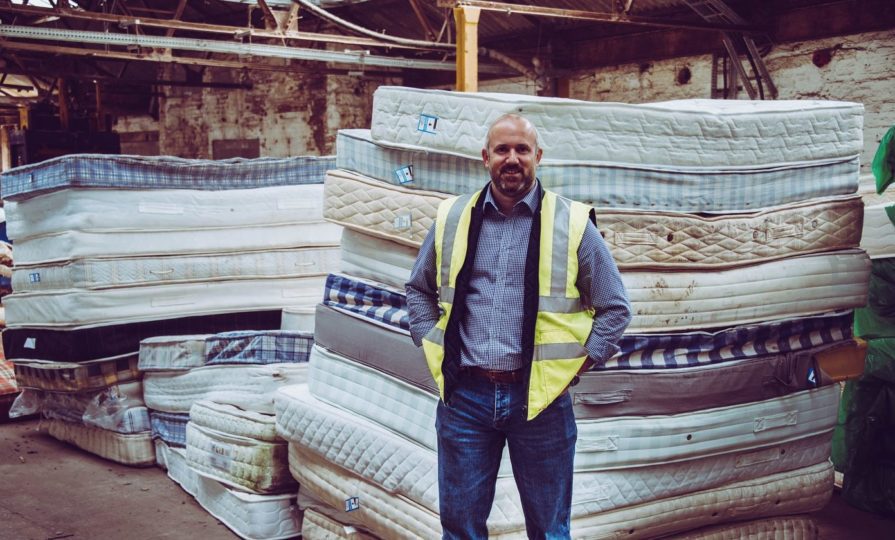Why the retail industry needs Extended Producer Responsibility

Register to get 1 free article
Reveal the article below by registering for our email newsletter.
Want unlimited access? View Plans
Already have an account? Sign in
Waste as a resource remains a hot topic in the news agenda. Consumers are becoming more concerned about the future of our environment, which has resulted in the government introducing a number of new policies to ensure we’re all working towards a more sustainable future.
Mattresses are a particular recycling problem that’s hugely underestimated. Due to their bulky nature and the difficulties in transporting them in large quantities, figures show that 7.5 million are discarded to landfill sites each year.
However, with consumers starting to recognise the threat our “throwaway society” poses to the environment’s future and making more responsible product choices, the onus is transferring to manufacturers and retailers to take responsibility for what they put out there on the market.
It’s time that a recycling levy is placed on all non-biodegradable products to pay for the responsible recycling of the goods at the end of their useful life; this would make manufacturers far more likely to consider recycling when they develop new products, and retailers would think twice about the products they sell and therefore, the manufacturers they work with.
Essentially we need to look at product stewardship such as Extended Producer Responsibility (EPR). This would mean that businesses that manufacture, import and sell products are held responsible for the waste they generate. Producers remain accountable for their products – even beyond the point of selling them – and any associated packaging, which pushes them to contribute to the cost of collecting, moving, recycling and disposing of their products. Under this type of scheme, producers can introduce take back programmes or arrange waste collection and drop-off points.
Several EPR schemes exist in the UK already, with packaging, electronic goods, batteries and cars all being subject to EU requirements. However, to make a substantial difference, we need to go much further and create schemes for all products, including mattresses and other bulky waste.
We must learn from countries such as France, who have introduced widespread EPR schemes, or Japan, who have implemented an EPR law for a range of industries and who demand some manufacturers use recycled materials in new products.
We need to put more pressure on our manufacturers and retailers, rather than relying on consumers with initiatives such as the latte levy and the 5p plastic bag tax.
EPR is helpful for introducing a degree of accountability for brand owners and manufacturers, forcing them to take steps in reducing their environmental impact. Under most of these models, the producer helps to fund the collection and recycling costs by paying an upfront fee proportional to how much product they put on the market.
Given that EPR could prove useful in propelling us towards a circular economy, the UK should now take steps to make these schemes more commonplace. To achieve the ambitious targets outlined by the EU in the Circular Economy Package, we need to see implementation of new schemes, as well as improved approaches to EPR to make existing schemes more efficient and effective.
It’s critical that producer responsibility schemes are introduced to tackle the number of waste problems we currently face. Assigning this particular responsibility to businesses provides them with an incentive to minimise their own environmental impact, either by encouraging recycling or by designing more environmentally-friendly products.
The implementation of an EPR scheme can only result in a better waste management solution that takes us another step closer to achieving our much-needed circular economy.







